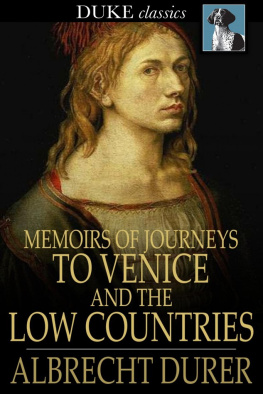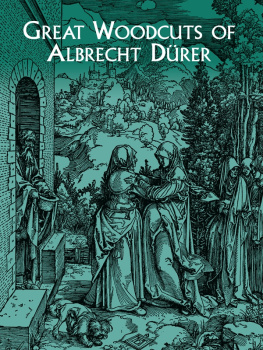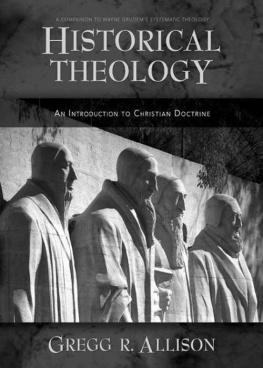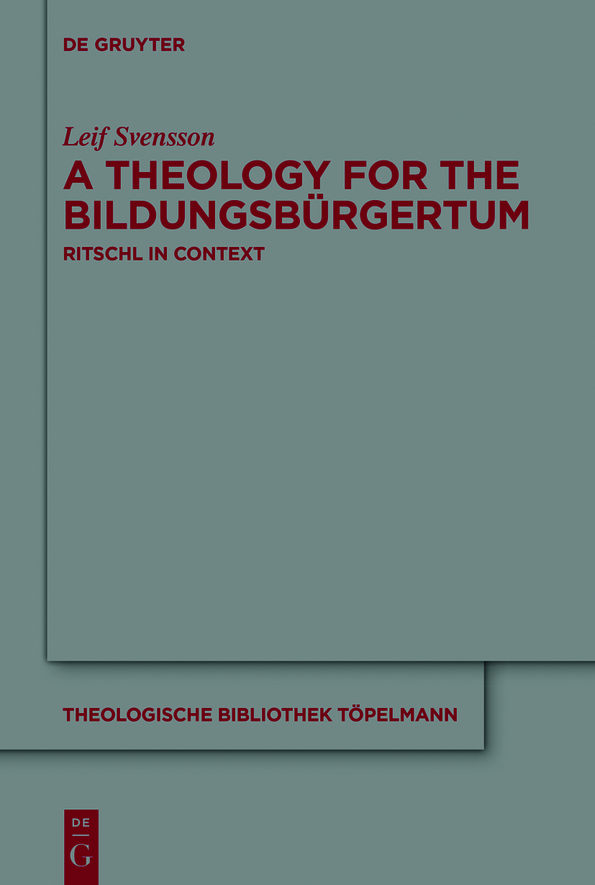Theologische Bibliothek Tpelmann
Edited by
Oswald Bayer
Wilfried Hrle
Hans-Peter Mller
Bruce McCormack
Friederike Nssel
Christoph Schwbel
Volume
ISBN 9783110625592
e-ISBN (PDF) 9783110626261
e-ISBN (EPUB) 9783110626469
Bibliographic information published by the Deutsche Nationalbibliothek
The Deutsche Nationalbibliothek lists this publication in the Deutsche Nationalbibliografie; detailed bibliographic data are available on the Internet at http://dnb.dnb.de.
2020 Walter de Gruyter GmbH, Berlin/Boston
Acknowledgments
My gratitude goes out to all who have assisted and supported me in the writing of this book. First of all, I would like to thank Arne Rasmusson for inspiring and encouraging me over the years, first during my undergraduate studies and later on as my supervisor. I have greatly benefited from Arnes breadth of knowledge and understanding, and his support, advice, and constructive criticism have been invaluable to this study.
I am also very grateful to my assistant supervisors, Thomas Girmalm and Mats Wahlberg, who have been most generous with their time and support. Thomas has, among other things, helped me with various practical issues and provided many insightful comments and suggestions on my work. Mats has been an important conversation partner throughout, and his excellent analytical skills and careful reading have enabled me to clarify and greatly improve the different arguments.
In 20152016, I had the opportunity to spend the winter semester at the University of Tbingen as a visiting doctoral student. While in Tbingen, Volker Leppin and Christoph Schwbel read early drafts and gave me very valuable feedback. They also commented on the entire manuscript at a late stage in the process. I am greatly indebted to their expertise and their most helpful suggestions.
Drafts of this book have been discussed in Leppins research seminar in church history at the University of Tbingen, in the ethics seminar at Uppsala University, twice in the Swedish Research School in systematic theology, and also on several occasions in the research seminar in religious studies and theology at Ume University. I have benefited from the helpful comments by the participants in these seminars. I especially thank Tord Larsson and David Wiljebrand for their close reading of different drafts and their perceptive observations.
Completing the present work would have been impossible without my family, which is a constant source of joy and love. I am forever in debt to my beloved wife Elin. Our children, Erling and Hjalmar, were born after I started my doctoral studies. Not only has Elin carried a heavy burden in order for me to finish this project, she has also encouraged me along the way. This book is dedicated to Elin.
I am also very thankful to my mother Hillevi for her invaluable support and wisdom. And I thank my sisters Christina and Elisabeth for their encouragement. My mother-in-law and father-in-law, Kerstin and Kjell, deserve a special thanks. They have helped and supported me and Elin in innumerable ways during the years I have been working with this book. I also thank my sister-in-law Johanna and brother-in-law Josef for their support.
My research has been financially supported, in addition to the Faculty of Arts and Humanities at Ume University, by the following foundations: Helge Ax:son Johnsons stiftelse, Sixten Gemzus stiftelse, Stiftelsen Lars Hiertas Minne, and Teologifonden.
Introduction
The subject of this study is the German Lutheran theologian Albrecht Ritschl (18221889). Two monumental three-volume works,
Ritschls impact on Protestant theology in Germany and beyond is enough to arouse the historians interest. But there is, nevertheless, a general impression among contemporary theologians that Ritschl is irrelevant for at least two reasons. First we have Karl Barths well-known questioning of Ritschls importance in his lectures on modern Protestant theology:
It has been said of Ritschl that in the history of theology since Schleiermacher he is the only one who, in the true sense, has given birth to an epoch. This is not true because all the strivings proceeding from Schleiermacher, who was, despite all argument, the only one who really gave rise to an epoch, continued on their way in a very significant fashion beside Ritschl, and were even more than ever taken up again after him. [] Ritschl has the significance of an episode in more recent theology, and not, indeed not, that of an epoch.
This dismissal of Ritschl in a short and unenthusiastic chapter, the last in the book, as Colin E. Gunton puts it in the introduction to the English edition of these lectures, has contributed to the common opinion that there are few things of value in Ritschls theology. In fact, even among many contemporary researchers interested in the Ritschlians, there is a general feeling that Ritschls disciples are more exciting than Ritschl himself. Gary Dorrien has given voice to that feeling:
The Ritschlian movement offers the rare example of a school outshining its founder. Ritschl was short on personal magnetism, his writing style was clumsy and verbose, his politics were stodgy and conservative compared to the North American social gospelers that he influenced, and some of his followers surpassed him in scholarly depth, creativity, and lasting influence.
In light of the widespread dismissal of Ritschls theological relevance and the general feeling that Ritschl was outshined by his disciples, the question naturally arises as to why I have chosen to investigate Ritschls theology.
I would like to respond to that question by noting, firstly, as Claude Welch has pointed out, that Barths comment is essentially a systematicians judgment of value for the constructive theological efforts, rather than a historians judgment of impact or influence. The mere fact that Barth and others have called the theological value of Ritschls thought into question should not make us doubt Ritschls relevance as a historical object of study. Whatever position we might take in regard to his importance for present-day theology, it is still the case that Ritschl is a central figure in the history of modern theology. There is also a real risk that our understanding of Ritschls disciples would be insufficient if we were to study them in isolation from their master. This is true even if we grant that Harnack, Herrmann, Holl, and Troeltsch surpassed Ritschl in several ways.
And we must not forget that theologians can learn some of their most important lessons from recognizing and understanding past theological mistakes. Indeed, the importance of learning from the failures of the past should not be underestimated. Those who cannot remember the past are condemned to repeat it, as a famous philosopher once wrote. It might, therefore, very well be that Ritschl is valuable for theological construction today precisely because of the problematic aspects of his theology. Even if I, for reasons that will become clear in the third section of this introduction, believe that there is some truth behind Barths negative verdict on Ritschls theological thinking, I am still of the opinion that contemporary theologians need to take Ritschl more seriously than Barth managed to do. So in the end, my conviction is that Ritschls theology is of relevance to contemporary historians and theologians alike that is also one of the fundamental assumptions from which this study proceeds.
An Exercise in Historical Theology
This investigation of Ritschls thought can be described as a historical-theological study or an exercise in historical theology. It is commonly agreed upon that the origins of historical theology can be traced back to the sixteenth century, the era of the Protestant, Catholic, and Anabaptist reformations, when demonstrating continuity with early Christianity became of paramount significance for many theologians. Decisive for historical theology as we understand it today, however, was the rise of the so-called









